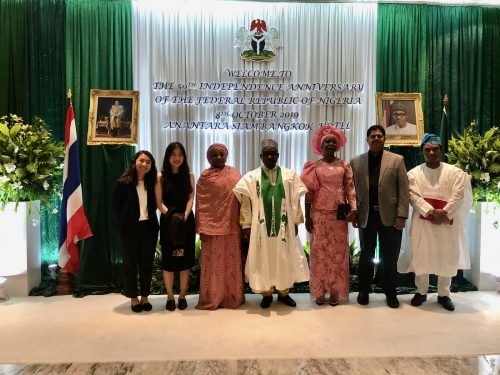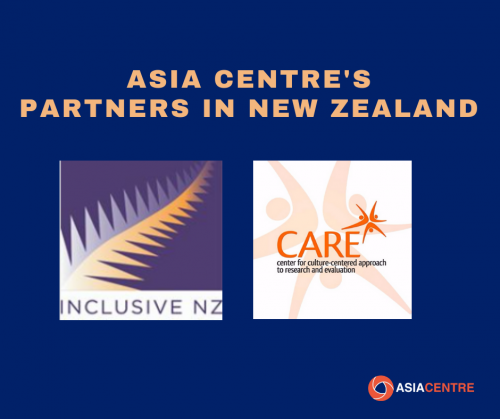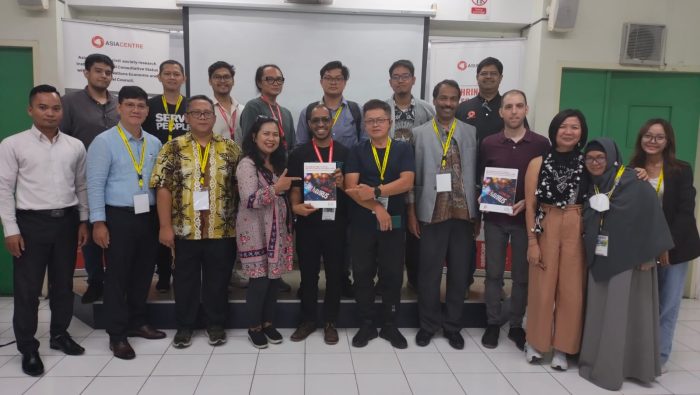
Emergency measures imposed by governments across Southeast Asia during the COVID-19 pandemic negatively impacted human rights and democracy in the region, leading to the shrinking of civic spaces and repression of human rights activists, CSOs, independent journalists, and other civic actors. Although most of these measures were initially and publicly meant for public health and safety, these governments, in practice, used these to curb civic freedoms. These include laws that criminalise protestors, silence calls for public accountability, restrict electoral campaigning, and closely surveil the population.
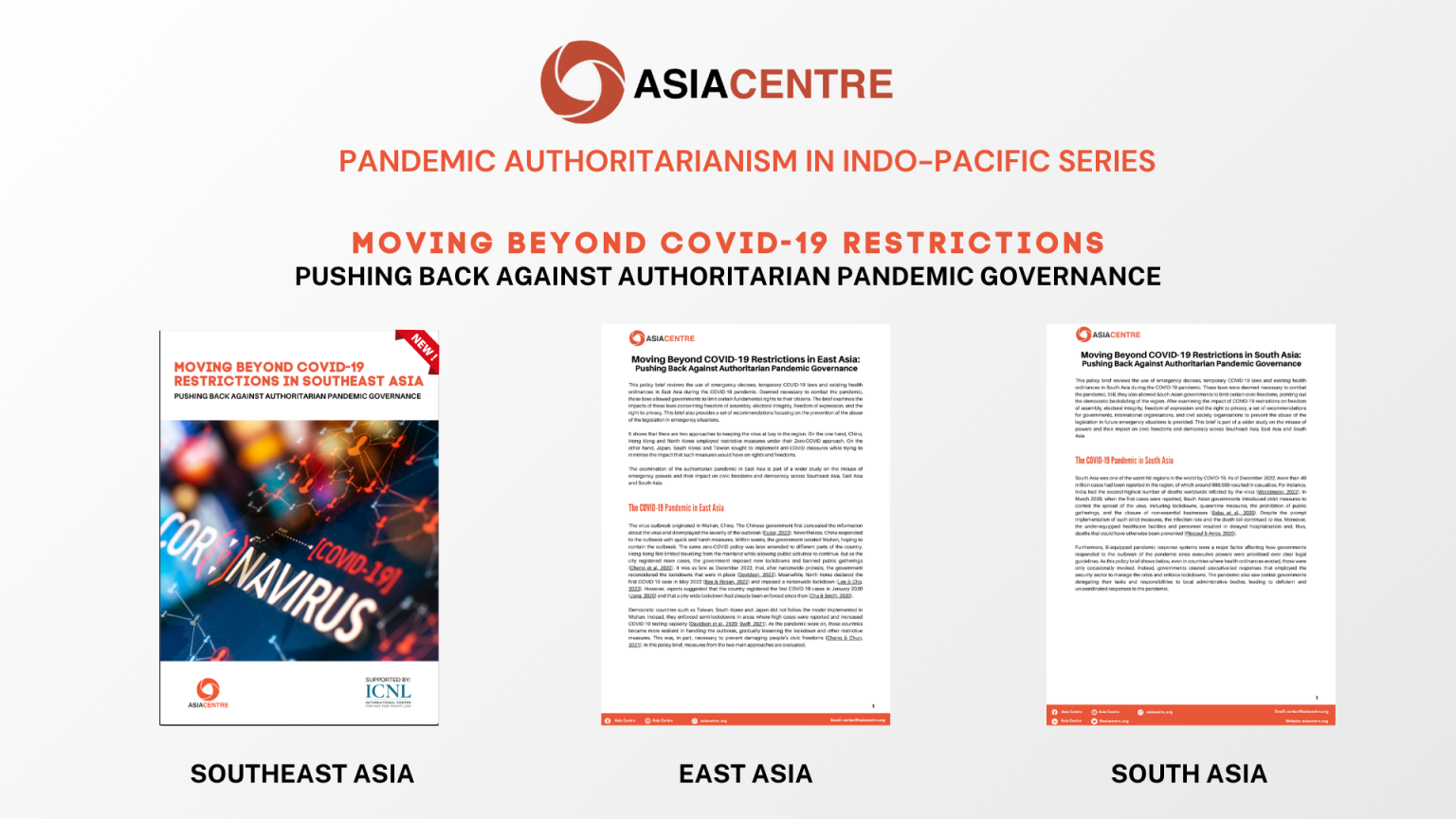
In this context, Asia Centre, in partnership with the International Center for Not-for-Profit Law (ICNL), published a report entitled “Moving Beyond COVID-19 Restrictions in Southeast Asia: Pushing Back Against Authoritarian Pandemic Governance” and two policy briefs, Moving Beyond COVID-19 Restrictions in South Asia: Pushing Back Against Authoritarian Pandemic Governance and Moving Beyond COVID-19 Restrictions in East Asia: Pushing Back Against Authoritarian Pandemic Governance in early 2023 to explore how governments used state powers during the COVID-19 pandemic to derogate rights and extend these powers post-pandemic.
The report and policy briefs provide recommendations for governments, international organisations, and CSOs to improve democratic governance after the pandemic.
The SEA report and country studies on Indonesia and Thailand were presented in a panel at the ASEAN Civil Society Conference/ASEAN Peoples’ Forum 2023 in Jakarta, Indonesia, on 2 September 2023 by the Asia Centre team consisting of regional director Dr James Gomez, research manager Dr Marc Piñol Rovira, research associate Ekmongkhon Puridej with Advisory Board Member Nukila Evanty. Following the ACSC/APF 2023 theme “Reclaiming safe spaces, restoring democracy and equity in Southeast Asia!”, the one-and-a-half-hour session gave the audience an overview of the COVID-19 restrictions in Southeast Asia, with a special focus on Indonesia and Thailand.
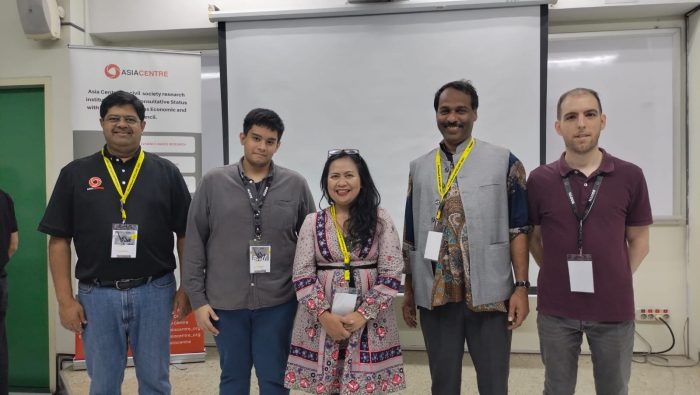
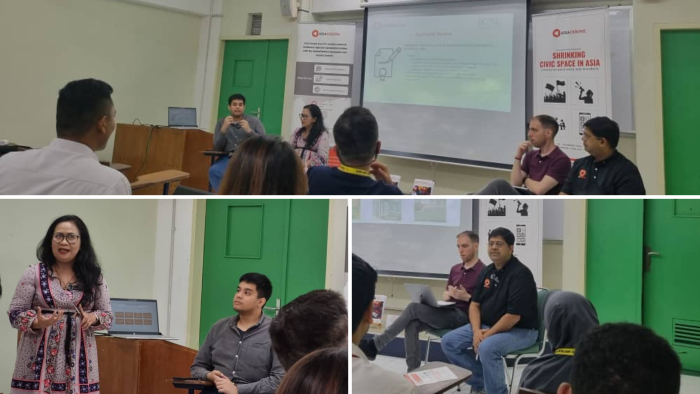
Dr James Gomez opened the panel by providing a background overview of the impact of COVID-19 in ASEAN countries and noted that much of the impacts from the implemented restrictive laws lasted and prevailed into the post-COVID-19 pandemic era today.
Dr Marc Rovira continued by assessing how governments in the region implemented the emergency measures and the laws used to curb the civic freedoms of its citizens in the name of national security against the spread of the disease.
For the case study of Indonesia, Nukilla Evanty delineates how the emergency measures in Indonesia have resulted in an increased number of attacks towards those who are critical of government policies.
In the case of Thailand, Ekmongkhon Puridej explained the power and the misuse of the Emergency Decree which resulted in restrictions on freedom of assembly and the chilling of free speech. He also gave a brief overview of the advocacy efforts by the civil society in the region and discussed the need to include rights-protecting provisions in a possible international pandemic treaty.
To further promote the findings of the report to the larger public, Asia Centre also held a booth at the ACSC/APF 2023, providing digital copies of the report for the attendees of the conference. Many of the conference participants, which include civil society actors from across Southeast Asian countries and beyond, took interest in the report, which sparked engaging conversations at the booth.
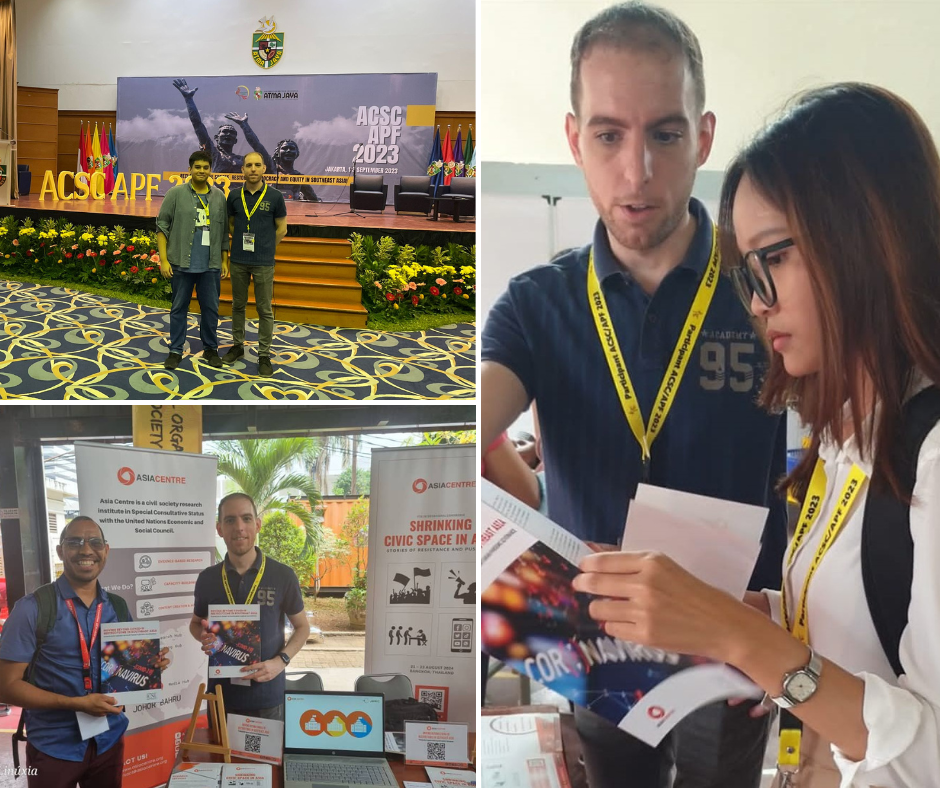
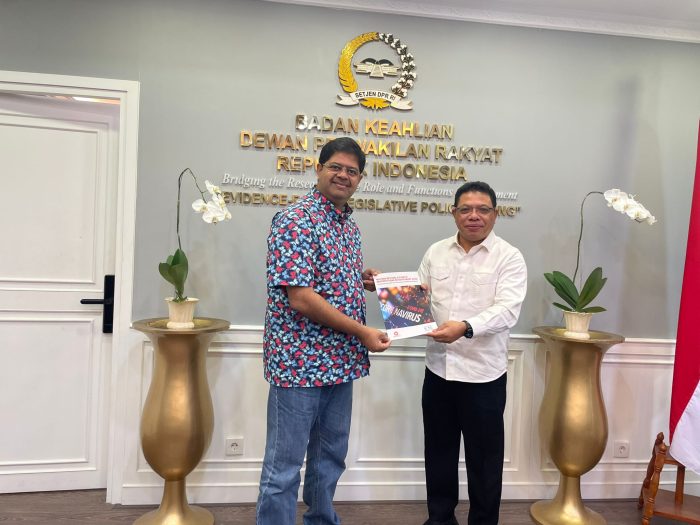
The ACSC/APF 2023 also provided the Asia Centre delegates the added opportunity to meet and present and discuss the report to the head of the Expertise Agency of The House of Representatives of The Republic of Indonesia (BKD), Dr. Inosentius Samsul. Asia Centre has previously signed a 5-year MoU with The Expertise Agency (BKD) in 2022 to establish a partnership between both organisations to jointly undertake and support the publishing of research outputs, execute teaching and training programmes, and develop course outlines and materials.
Earlier this year, in April 2023, the policy brief on East Asia, “Moving Beyond COVID-19 Restrictions in East Asia: Pushing Back Against Authoritarian Pandemic Governance,” was presented by Dr James Gomez at the Tokyo Democracy Forum meeting, which was organised on the sidelines of the C7 Summit in Japan.
By disseminating these insights and engaging with a diverse audience at the conference and beyond in Indonesia, Asia Centre continues to play a pivotal role in advocating for democratic principles and upholding human rights in Southeast Asia.
For more information on the report and its findings, please visit the provided link.
For more photos of Asia Centre’s involvement in the ACSC/APF 2023, please visit Asia Centre’s Facebook page here.
Asia Centre is a civil society research institute in Special Consultative Status with the United Nations Economic and Social Council. It serves as a knowledge partner and undertakes evidence-based research as well as provides capacity-building training for end beneficiaries. If you would like to collaborate with the Centre, please send an expression of interest to contact@asiacentre.org.

